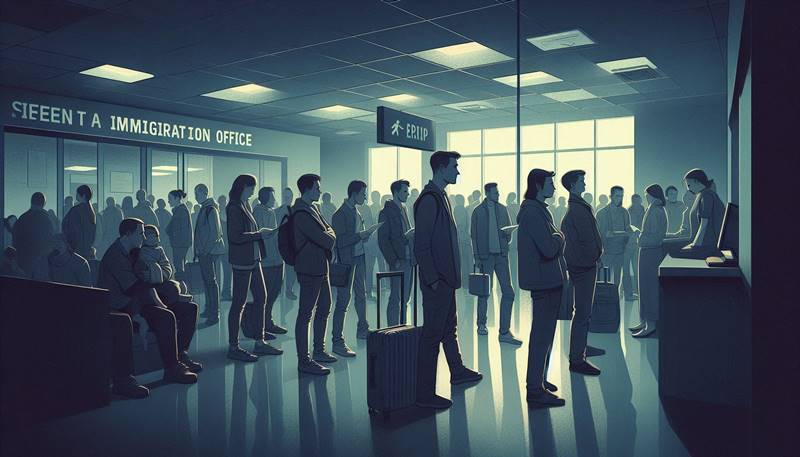So, Brazil’s finally getting around to fixing their tax system. It’s been a long time coming, with folks talking about it for decades. The current tax code is a mess, and almost everyone agrees it needs a complete overhaul. This reform aims to make things simpler and hopefully fairer for everyone. Businesses, citizens, and the economy as a whole are all going to feel the changes. The big question is, will it really help? Let’s dive into what this reform is all about and what it could mean for Brazil.
Key Takeaways
- Brazil’s tax reform aims to simplify the complex tax system that’s been in place for years.
- The reform could lead to more efficient tax collection and potentially boost the economy.
- Essential goods like food and medicine might see reduced tax burdens, but details are still pending.
- Businesses might face fewer bureaucratic hurdles, encouraging both domestic and foreign investments.
- The impact on citizens’ daily lives, including cost of living and social equity, remains a major focus.
Understanding the Need for Tax Reform in Brazil
Historical Context of Brazil’s Tax System
Brazil’s tax system has been a tangled web for decades. It’s not just a recent issue; this has been brewing for years. Since the 1990s, the tax code has ballooned into a massive collection of laws and regulations. Imagine a book so big it could weigh tons. That’s how complex it got. Over time, more and more rules piled on, making it nearly impossible for anyone to keep up. An average of 35 new tax rules pop up every day. It’s like trying to hit a moving target. This complexity has made the system unwieldy and hard to navigate, not just for businesses but for regular folks too.
Challenges Faced by the Current Tax Code
The current tax code is a beast. It’s notorious for being overly complicated, and it doesn’t help that it’s full of overlapping federal, state, and municipal taxes. This tangled mess increases the cost of doing business and stifles innovation. Companies spend an absurd amount of time just trying to comply—about 1,500 hours a year, according to some reports. That’s time that could be better spent on growth and development. The system’s complexity also leads to uncertainty, with taxpayers often unsure about what they owe and collectors unsure about what they’re collecting. It’s a headache for everyone involved.
Political Consensus and Legislative Efforts
Getting everyone on the same page for tax reform in Brazil was no small feat. It took a lot of political maneuvering to get here. The recent reform efforts are the result of a rare political consensus. It wasn’t just one party pushing for change; it was a collective effort across the political spectrum. Leaders from various parties, including those who traditionally opposed each other, came together to push this through. This kind of unity is unusual in Brazil’s political landscape, making the current push for tax reform a significant milestone. The proposed changes aim to streamline the system, making it more efficient and fair for everyone.
Key Components of the New Tax Reform
Simplification of Tax Codes
Brazil’s tax system, often seen as overly complex, is getting a much-needed overhaul. The reform aims to consolidate thousands of laws into a more manageable set of rules. This simplification could reduce the infamous bureaucracy that businesses face, making it easier to comply with tax obligations. Imagine cutting down the time spent on tax paperwork from hundreds of hours to just a fraction of that. It’s like finally decluttering a closet that’s been stuffed full for years.
Introduction of Value-Added Taxes
The reform introduces a new system of value-added taxes (VATs), merging several existing consumption taxes into two main ones: CBS at the federal level and IBS at the local level. This change is designed to streamline tax collection and end the “tax wars” between states. By taxing products at their destination rather than their origin, the reform hopes to create a more balanced economic playing field.
Impact on Consumption and Essential Goods
One of the goals is to lighten the tax load on essential goods like food and medicine. While the exact rates are still in the works, the plan is to exempt basic necessities from the CBS, potentially easing the financial burden on families. This could mean a slight relief in the cost of living, especially for those who feel the pinch of consumption taxes the most. The reform is a step towards a fairer tax system that aims to address social equity issues.
Economic Implications of the Tax Reform
Potential for Increased Competitiveness
Brazil’s tax reform is expected to make the country more competitive on the global stage. By simplifying the tax code and reducing bureaucratic red tape, businesses can operate more efficiently. This change is anticipated to attract both domestic and foreign investments, giving a much-needed boost to the economy. Streamlining these processes could lead to significant cost savings for businesses, which in turn might encourage them to reinvest in their operations and workforce.
Effects on Inflation and Price Stability
One of the primary concerns surrounding the tax reform is its impact on inflation. Although the reform aims to reduce taxes on essential goods like food and medicine, the exact rates are still under discussion. However, the introduction of value-added taxes (VAT) is expected to stabilize prices in the long term by reducing tax evasion. This could also bring about more predictable pricing, which benefits both consumers and businesses.
Long-Term Economic Growth Projections
Looking ahead, the tax reform is seen as a stepping stone towards sustainable economic growth. The reform’s focus on improving tax efficiency and reducing administrative burdens is likely to free up resources for more productive uses. Productivity is key here, as it has been a longstanding challenge for Brazil. With the demographic bonus fading, the country needs to rely more on productivity gains to fuel growth. The reform is expected to support this by encouraging investments in sectors where Brazil holds competitive advantages, ultimately leading to increased living standards over time.
The journey towards a more efficient tax system in Brazil is not just about numbers and policies. It’s about creating an environment where businesses can thrive, prices remain stable, and the economy grows sustainably. This reform is a critical piece in the puzzle of Brazil’s economic future.
For more insights on how Brazil’s tax reform aims to promote sustainable economic growth, consider how it addresses significant flaws in the current tax system, ultimately generating jobs and increasing income.
Impact on Businesses and Investment Climate
Reduction in Bureaucratic Hurdles
Navigating Brazil’s tax system has always been a bit of a headache for businesses. The new tax reform aims to cut down on red tape, making it easier for companies to operate without getting bogged down in paperwork. Streamlining these processes can save both time and money, letting businesses focus more on their core activities rather than administrative tasks. This change is expected to boost productivity and efficiency, which are crucial for any growing economy.
Encouragement of Domestic and Foreign Investments
Brazil is looking to become a more attractive spot for investors, both local and international. With the tax reform, the country hopes to present a more stable and predictable financial landscape. This could lead to an uptick in investments as confidence grows among investors. The reform’s goal is to create a welcoming environment that encourages investment, which is vital for economic growth and job creation.
Sector-Specific Impacts and Opportunities
Different sectors will feel the effects of the tax reform in various ways. For instance, industries like manufacturing and technology might see new opportunities arise from reduced taxes and less complex regulations. On the other hand, sectors heavily reliant on imports could face challenges due to changes in tariffs and duties. Businesses need to stay informed and adapt to these shifts to capitalize on new opportunities and mitigate potential risks.
The reform is a double-edged sword: while it holds the promise of a more competitive business environment, it also demands adaptability and strategic planning from companies to truly benefit from the changes.
Effects on Citizens’ Daily Lives
Changes in Cost of Living
The new tax reform in Brazil is set to shake things up for everyday folks. With the introduction of value-added taxes, many are wondering how this will hit their wallets. Essential goods like food and medicine might see changes in their prices, but it’s not yet clear how much. The government promises to lessen the tax load on these necessities, but specifics are still up in the air. People are hopeful that the reform will not make life more expensive, but only time will tell.
Implications for Social Equity and Poverty
There’s a lot of talk about how the reform could impact social equity. Brazil’s current tax system is known for being pretty hard on the poor, as a large chunk of tax revenue comes from consumption taxes. The reform aims to address this by potentially reducing taxes on basic goods, which could help those with lower incomes. However, the effectiveness of these changes in reducing poverty remains to be seen. It’s a balancing act between ensuring fair taxation and maintaining enough revenue for public services.
Public Perception and Acceptance of Reforms
Public opinion is mixed on the tax reform. Some see it as a necessary step towards a fairer system, while others are skeptical about its implementation and potential benefits. There’s a feeling of cautious optimism, but many are waiting to see how things pan out in practice. The government needs to communicate clearly and effectively to gain public trust and acceptance.
The success of the tax reform will largely depend on how well it aligns with the public’s expectations and addresses their concerns. Transparency and open dialogue with citizens are key to fostering trust and ensuring the reforms meet the needs of all Brazilians.
- The reform could lead to a fairer distribution of tax burdens.
- There is potential for reduced taxes on essential goods, benefiting lower-income families.
- Public acceptance hinges on clear communication and tangible benefits.
Future Challenges and Considerations
Ensuring Fiscal Responsibility
As Brazil moves forward with its tax reform, maintaining fiscal responsibility is a must. The government needs to balance spending with revenue to avoid ballooning deficits. Ensuring fiscal discipline will be crucial to maintaining economic stability. This means cutting unnecessary expenses and ensuring that the new tax structure generates enough revenue without overburdening citizens.
Addressing Structural Economic Issues
Brazil’s economy faces several structural challenges that tax reform alone can’t fix. From stagnant productivity to the need for better infrastructure, these issues require comprehensive strategies. A focus on innovation and technology could help drive growth, but it needs to be coupled with investments in education and infrastructure to be effective.
Monitoring and Adjusting Reform Outcomes
Once the tax reform is implemented, continuous monitoring will be essential. This involves:
- Regularly reviewing the tax system’s impact on different sectors.
- Adjusting policies to address any unintended consequences.
- Engaging with businesses and citizens to gather feedback.
The success of Brazil’s tax reform will depend not just on its design but on how well it’s monitored and adjusted in response to real-world outcomes. Flexibility and responsiveness will be key to ensuring that the reform achieves its intended goals.
Conclusion
So, here we are at the end of our journey through Brazil’s tax reform. It’s been a long time coming, and while it’s not perfect, it’s a step in the right direction. The reform aims to simplify a notoriously complicated system, making it easier for businesses to operate and hopefully boosting the economy in the long run. Sure, there are still a lot of unknowns, like how exactly it will affect prices and inflation, but the potential for a more efficient tax system is promising. For everyday folks, the hope is that essential goods like food and medicine will become more affordable. It’s a big change, and like any big change, it’ll take time to see the full effects. But with a bit of patience and some fine-tuning, this reform could be a game-changer for Brazil’s economy and its people.
Frequently Asked Questions
What is the main goal of Brazil’s tax reform?
The main goal of Brazil’s tax reform is to simplify the complex tax system, making it more efficient and fair for everyone. It aims to merge several taxes into a simpler structure, which could help boost the economy and make tax collection easier.
How will the tax reform affect the cost of essential goods?
The reform promises to lower the tax burden on essential goods like food and medicine. However, the exact tax rates for these items haven’t been decided yet. Some basic food items might have no taxes at all, but final prices will depend on further laws.
Will the tax reform reduce the amount of taxes people pay?
The reform is not expected to lower the overall amount of taxes people pay. Instead, it aims to make the tax system more efficient. Some people might pay less on certain goods, but the total tax collected will remain similar to ensure states and towns have enough funds.
How does the tax reform impact businesses in Brazil?
The reform aims to reduce the red tape for businesses, making it easier to operate. By simplifying tax rules, businesses can spend less time and money on tax compliance, which could encourage more investments both from within Brazil and from abroad.
What changes will citizens notice in their daily lives due to the tax reform?
Citizens might see changes in the prices of goods and services as the tax system becomes simpler. The reform also seeks to make taxes fairer, which could help reduce inequality. However, the exact impact on everyday life will depend on how the reforms are implemented.
What are some challenges Brazil might face after implementing the tax reform?
After the reform, Brazil will need to ensure that the new tax system is fair and doesn’t create new problems. There will be a need to monitor the effects and make adjustments if needed, especially to address any economic or social issues that arise.


